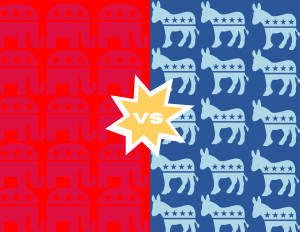Communist party fires editor-in-chief
November 11, 2015
Officials of the Communist party in China have been implementing new measures to crack down on intraparty disunity, namely, expelling the editor-in-chief of one of China’s major newspapers.
Zhao Xinyu was fired after four years in his position at the XinJiang Daily for openly discussing the party’s policies and questioning its opinions. He is now expected to face criminal prosecution for his actions along with removal from the Communist party.
This move by the 58-year-old Xinyu, however, was only recently made illegal after a decision by the party to change certain regulations.
It was previously held that speaking out against the party’s policy and opinions were illegal. However, a recent revision now prohibits any open discussion of the party’s views or policies whether good or bad, according to a New York Times article last week.
Hua Yang, a junior physics major at Suffolk who is originally from the south central region of China Guangxi, calls this situation a necessary evil.
“It’s a necessary step to maintain order within a central government infrastructure set up in which the government holds most of the power,” said Yang.
The Regional Discipline and Inspection Commission (RDIC), responsible for examining corruption and violations of party rules, said Zhao had been discussing party policy in an open manner, or, as it’s known in Chinese, “Wangyi Zhongyang”, which is a direct violation of new party regulation.
The Communist party feared Zhao’s actions could have “wide-ranging effects” in regards to the 90 million members’ behavior and actions. A statement made by Ma Senshu, a senior commission official for the Communist party, claimed his actions.
“[Destroys] the parties solidarity, and prevents party policy from being thoroughly implemented,” said Senshu to The New York Times.
Senshu, who worked in the office responsible for drafting the change, spoke out about the party’s new regulations. His statement claimed the language was employed in order to ensure solidarity in the speech and actions of all party members, according to reports by The New York Times during the past few weeks.
An official of the Communist party (who did not reveal further details on Zhao’s prosecution) gave an announcement stating his main violation as “discussing the party central’s policies and decisions, and openly publishing comments against party central and the Xinjiang party committee’s important orders and demands.”
However, the newly disbanded member’s arrest did not come swiftly.
President Xi Jinping and his ally Wang Quishan, the leader of the Central Discipline and Inspection Commission, a sub-division of the RDIC, had taken particular interest in the situation. The two had been detaining and investigating associates of Zhao for months until finally leading to the rebel’s arrest.
Along with this, Zhao’s time at the Xinjiang Daily was not without controversy. Originating from the Shanxi province, Zhao now worked for a paper in the midst of ethnic warfare that has led to the death of hundreds in recent years.
The Uighur, a large ethnic group in Xinjiang, complained about the discriminatory policies set by the Han, the dominant ethnic group of China. Fueled by anger and frustration, these complaints have led to violence and protests throughout Xinjiang, according to BBC.
Bordered by Pakistan and Kazakhstan, Xinjiang is a desert region in China’s western borderlands that has attracted a lot of media attention. In response, the Communist party has implemented anti-Islamic practices in blaming Muslim extremists.
For many, living under such federal restrictions does not seem like a way of life.
Said Hua Yang in explaining the culture, “Eventually, this boils down to the different values embraced by the Western and Eastern worlds.”
“This may be seen as an infringement of privacy here, but over there it may be considered the natural response.”
In some countries, this would be an act against freedom of the press, but in China, it’s discipline.






